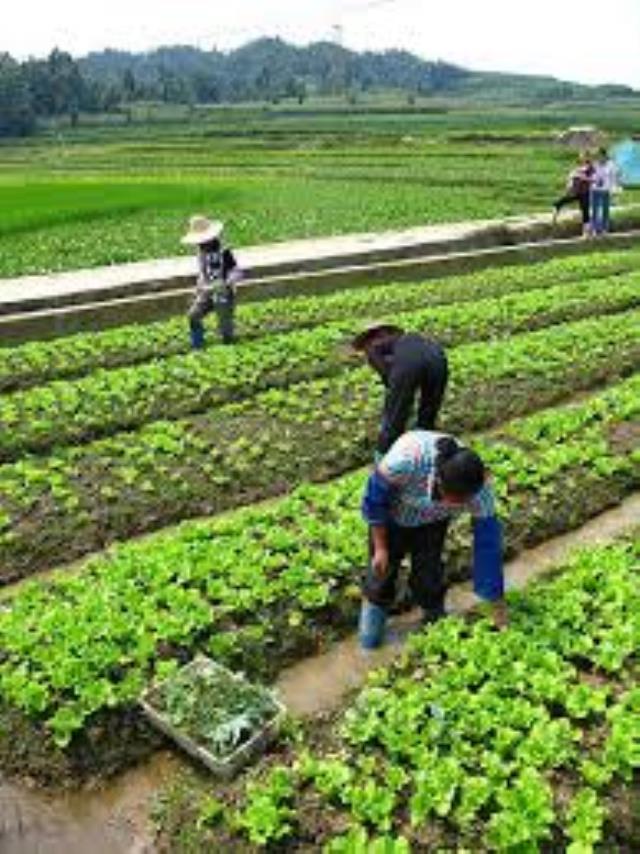Written By: UCHE EZENWILE
Recently, the price of oil in the global market plummeted to as low as twenty-five dollars per barrel, which made it the worst in the world’s history. This affected countries like Nigeria that depends mainly on oil as her main source of revenue.
The shock on Nigeria was so devastating that the country had to review its budget so as to be in tune with the current economic realities. This downwards trajectory of Nigerian economic has added untold hardship to the already existing suffering of the masses to the extent that many families find it difficult to feed, at least, once a day.
As the federal and state governments are gradually relaxing the lockdown, it is obvious that the country must rejig its economy towards agriculture, so as to avert the impending food crisis in the country. Massive agricultural production should be embarked upon to boost food sufficiency and enhance raw materials for small and medium enterprises.
No doubt, Nigeria is blessed with arable lands, good climate, sufficient rainfall, and above all beautiful weather that are responsible for high quality agricultural products like palm products, rubber, groundnut, cocoa, hides and skins. Unfortunately, these rich agricultural products have been jettisoned for crude oil and its luring revenue.
Regrettably, this revenue has not been used to better the lives of millions of Nigerians, whose poverty statuses have continued to ebb on daily basis. Countries like Malaysia, U.S.A, Singapore, Thailand and China that took agriculture as business have not only achieved food sufficiency but are also exporters of these products. Today, these countries have achieved dual purposes in their nations’ building which have placed them on the ladder of development.
Nevertheless, the COVID-19 era has provided Nigeria with another opportunity to reset her economy to agriculture. Interestingly, the federal and some state governments have introduced a lot of measures to boost the sector. Some of these measures include distribution of improved seedlings to farmers, revitalization of agricultural extension services, injection of one point two billion dollars into the agricultural sector and agric loans.
True to fact, Anambra State as the light of the nation, apart from its commendable revolutionary policies on agriculture, is on the match again with the introduction of Ugbo Azu Uno initiative. This wonderful initiative will not only ensure food sufficiency but also generate revenue to the state. This should be replicated in other states in Nigeria as a foundational step towards greater yields.
These are laudable ideas and initiatives, because of their driving forces to turn around the much neglected sector. For instance, the Agricultural Extension services provide farmers with the scientific knowledge, methods & techniques needed to improve on food production.
It is applaudable that the federal government plans to inject one point two billion dollars for agricultural mechanization which will cut across 632 local government areas and 140 Agricultural plants. These are capable to attract about 774,000 jobs for the youths in agribusinesses. Laudable and wonderful as these initiatives are, government should surmount the protocols of bureaucracy; otherwise the whole ideas will end up as a mere policy statement without implementation status.
For example, the issue of agricultural loan should be effectively monitored so as to ensure that it gets to the real farmers and not political farmers who parade the various ministries of agriculture for self-enrichment. Above all, the herders/farmers clashes should be eradicated while the menace of the killer herdsmen oddity should equally be punctuated so that farmers can go about their farming business without fear of death or rape.





Comments are closed for this post.